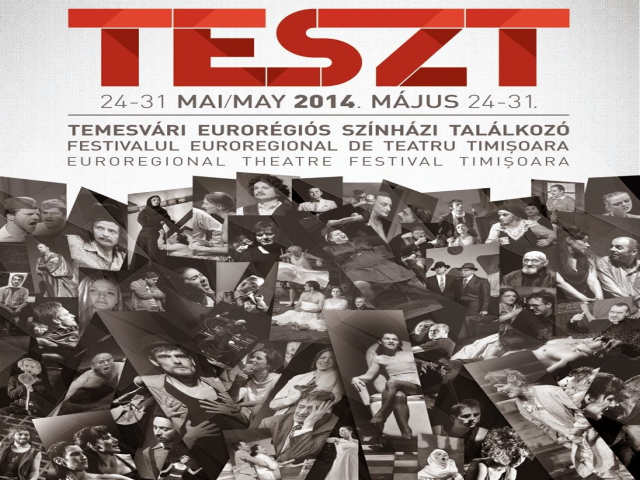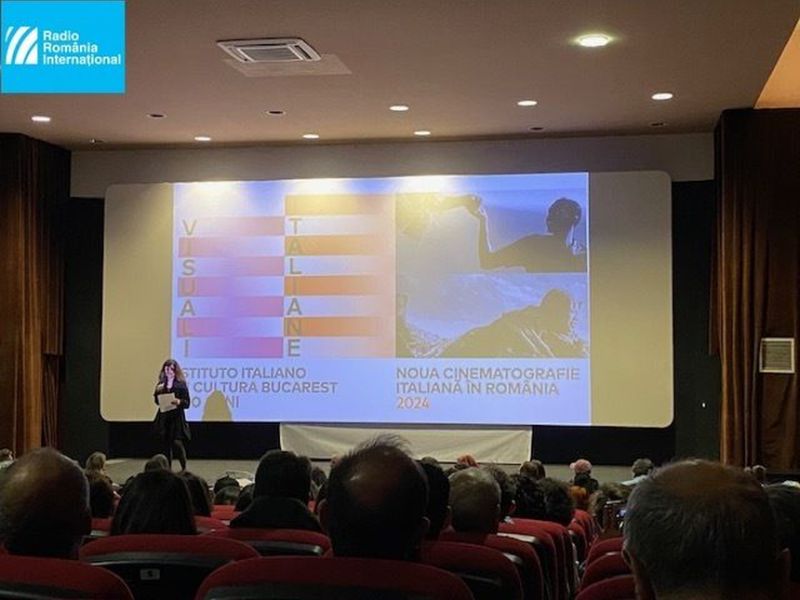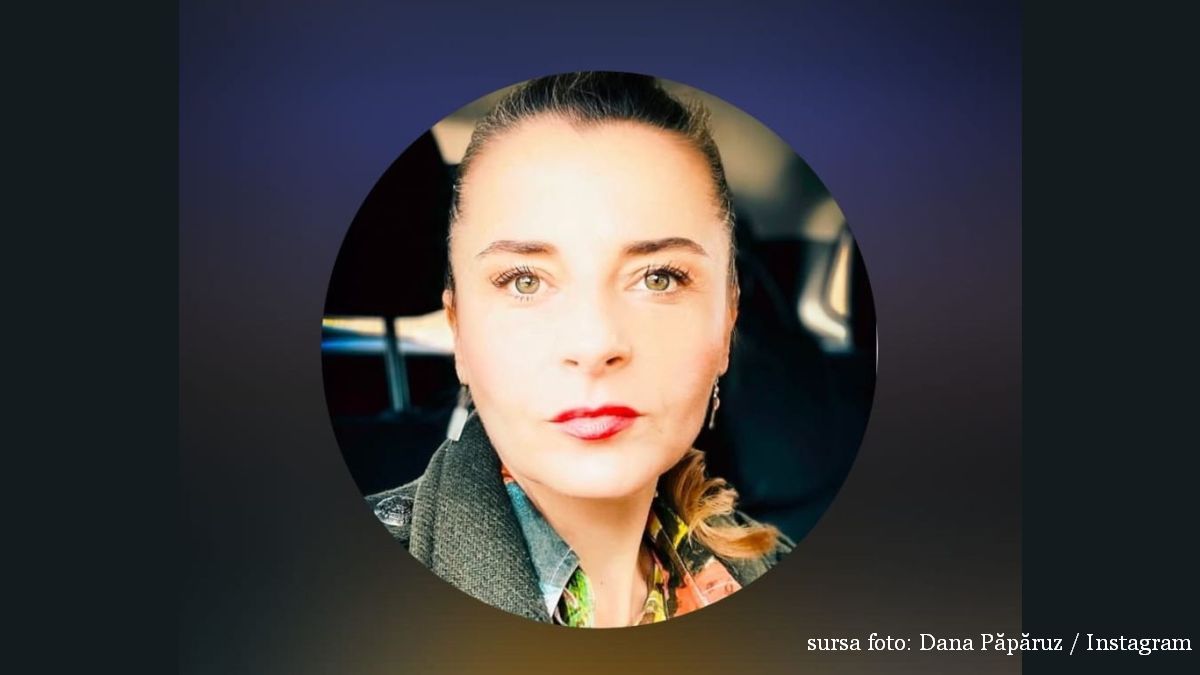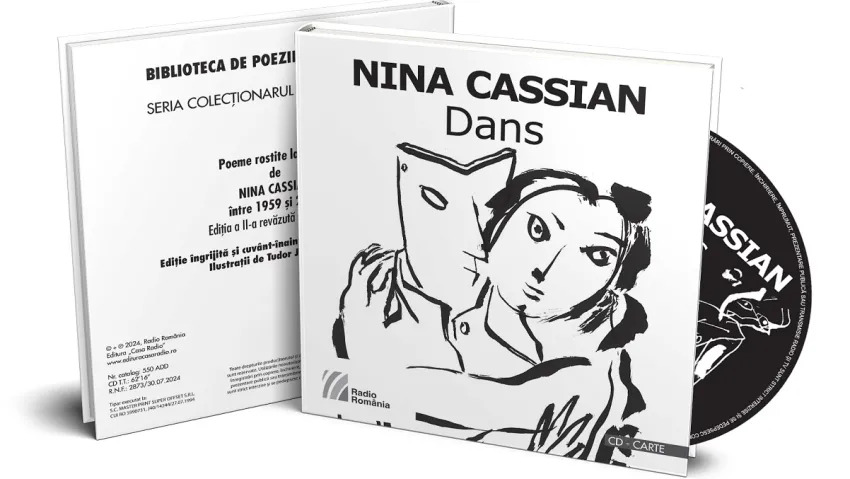The TESZT Euroregional Theater Festival in Timisoara
The “Csiky Gergely” Hungarian State Theater in the western Romanian city of Timisoara organized in the last week of May the 7th edition of the TESZT Euroregional Theater Festival. Beginning with its inaugural 2007 edition, the festival has set out to highlight the multi-cultural nature of the DKMT region (Danube, Cris, Mures Tisa rivers) and also to strengthen ties between theaters in the region. For that, the festival is unique among Romania’s otherwise notable theatrical events. Taking part in the festival are performances and artists from Romania, Hungary and Serbia.

Luana Pleşea, 14.06.2014, 14:32
The “Csiky Gergely” Hungarian State Theater in the western Romanian city of Timisoara organized in the last week of May the 7th edition of the TESZT Euroregional Theater Festival. Beginning with its inaugural 2007 edition, the festival has set out to highlight the multi-cultural nature of the DKMT region (Danube, Cris, Mures Tisa rivers) and also to strengthen ties between theaters in the region. For that, the festival is unique among Romania’s otherwise notable theatrical events. Taking part in the festival are performances and artists from Romania, Hungary and Serbia.
The festival has a different theme each year. With details on that, here is the director of Timisoara’s Hungarian State Theater Attila Balazs.
Attila Balazs: ”We have tried to center the shows around the theme ‘The Past and Working out the Past into Present’. It’s a little bit strange that the shows this year have revolved around this theme. Actually it’s not us who pick up the themes, it’s the themes that actually present themselves to us. The only thing we have to do is decide which is the most relevant theme for the region. Last year, everything was a lot fresher, it was a lot more updated. This year we’re looking more into the past.”
Opening the festival this year was “Fires”, a show staged by Radu Alexandru Nica at the Hungarian State Theater in Timisoara. The story starts from the Lebanon War and looks into the fateful influence it had on people’s lives: two twin brothers try to recapture, to make sense of their mother’s past. The author of the play is Wajdi Mouawad, who is a Canadian writing in French and who had Lebanese origins. His text was adapted for the film with the same title, which received a nomination for the 2012 edition of the Oscar Awards, in the best Foreign Film Category.
Radu Nica: ”What I really liked was that it is a touching text. No one has been writing in a touching key of late. We are all cool, sophisticated, we like to show that we think, we are afraid to feel. I also fought with myself, I must admit it. I like those texts as well. I am not a fan of excessive emotion in a play. But I needed an exception. There were several challenges. The story itself, which is intricate, in the sense that it is a strange contemporary mix of thriller and ancient tragedy, came out as a real challenge, I had to maintain its thriller as well as its tragic touch, at once avoiding the ancient tragedy’s inaccessible coolness, and turning it into a story of our times instead, given that more than half of the play is set in the Middle East, which means that, in terms of mentality, it is quite far from us.”
Another show, invited as a guest performance at the 7th edition of the TEZST, was “Once Upon a Time in Timisoara”, written and directed by Peter Kerek and presented by the team of Timisoara’s National Theater. “Once upon a Time in Timisoara” is the story of a family that had quite an experience during the communist regime, who are trying to conceal their past. Speaking now is actress Andrea Tokai, about “Once Upon a Time in Timisoara”.
Andrea Tokai: “…That we are all humans… that’s what I understand from this show. The story is simple. It’s about a woman with many children, the mother dies in an accident and the children come back home. And what happened between them? What is to be found out? What happened 20 years ago? I impersonate an elderly character, I am part of the family, but at the same time I am not part of the family, because I am from the outside. She is a servant, yet not a servant, she is some sort of mother, but not a mother as such. That’s what I understood: that we are not good, we are not bad, we are humans, we live and try to get on with our lives. It’s not about survival. There are moments of limit, of quarrelling, of hatred, yet they’re not taken to a survival zone. It all gets sorted out, as it always happens in real life.”
One other play part of the Euroregional Timisoara Theater Festival is ‘Red’, a joint production of the Subotica People’s Theater of Serbia and Katona Jozsef Theater of Budapest, directed by Mate Gabor. It has to do with the atrocities committed during WWII in Yugoslavia in the area bordering Hungary, especially in the areas inhabited by Hungarians. In early 1942, the Hungarian army invaded Yugoslavian territories, leaving many victims, and in 1944 the Yugoslavian communists started a campaign of retaliation against ethnic Hungarians. There were no trials back then, only torture, summary executions and mass killings. The script is by Bretyaszky B. R., principal writer for the Subotica People’s Theater.
Bretyaszky B. R.: “This period of history was taboo until very recently. According to historians, tens of thousands of people fell victim to these events, which were not only forbidden to talk about, people were very afraid of talking about them. In order to take the next step, we must become aware of the past.”
The theme of this year’s TESZT Festival is ‘The Past and Working Out the Past into Present’, the perfect venue for the guest show ‘The Lowlands’, based on Herta Muller’s writings, adapted by Niky Wolcz, who also directed the show, put on by the Timisoara German Theater. Actress Ida Jarcsek-Gaza plays the grandmother:
Ida Jarcsek-Gaza: “The director said he was not interested in the rough side of things, which is obvious in Herta Muller’s writings. I am interested in discovering together the lyrical things, the beautiful things, the whispered things, the fine and the vulnerable. I am grateful to Niky Wolcz for this one thing: of having the patience of discovering the soft core underneath this very tough and rough exterior. For me this was very important as an actor. I believe that this is what is beautiful in this show, the fact that this presents so many aspects that there is no member of the audience who would not identify through a very personal memory, an intimate memory, with a part of this show: I thing this is the winning side of this show.”
The organizers have also prepared for this year’s edition of the festival a book written and printed from the perspective of intercultural dialog between the theaters, institutions and artists from the three countries. “Cross Border Roads” was born out of the basic idea and aesthetic of the festival, that of creating a common platform, a multilingual platform for the most important theaters and art institutions in a cross border area.






























